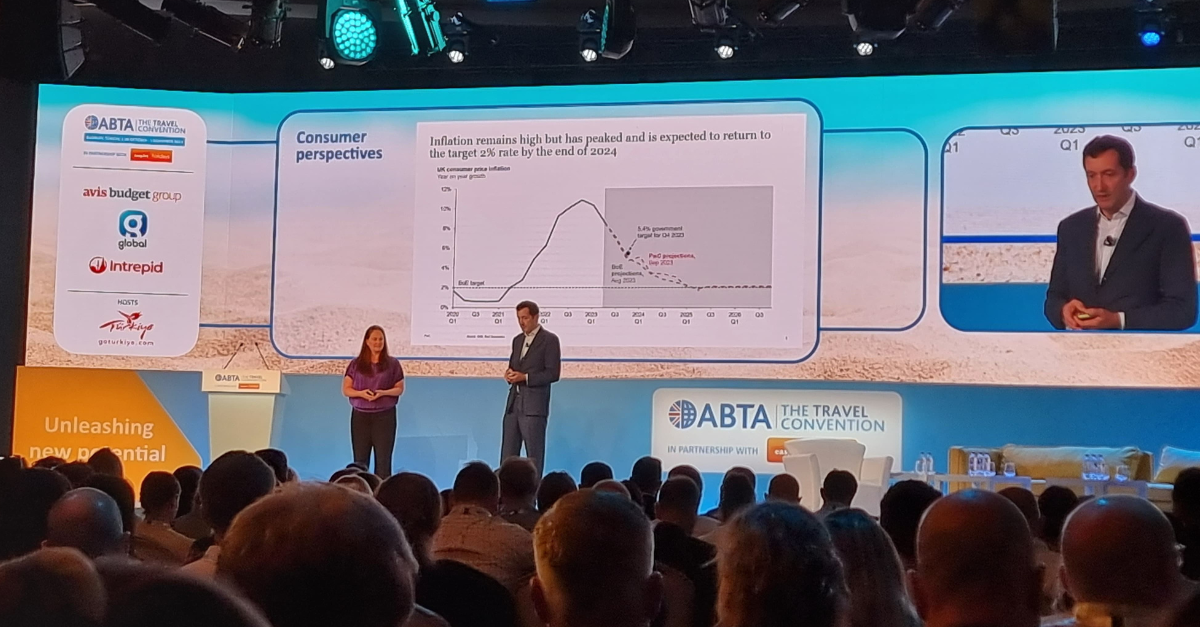You are viewing 1 of your 2 free articles
Travel demand forecast to remain robust in 2024 despite headwinds
Outbound travel demand is forecast to remain robust in 2024 despite “some caution”, according to analysts at professional services group PwC.
Speaking at Abta’s 2023 Travel Convention in Bodrum, PwC strategy partner Eleanor Scott said the sector has cause to be optimistic as consumers’ financial pressures ease and research shows holidays remain a priority for Brits.
She revealed findings of PwC’s latest UK consumer sentiment survey, which revealed about 70% of respondents said they plan to spend the same or more on holidays next year as they did this year – but she highlighted that 15% said they were not yet sure, which is “quite a high proportion and more than at this stage last year”.
More: Travel on ‘threshold of new era’ Abta chief tells Travel Convention
Those who expect to spend less on travel in 2024 said this would be achieved by either taking fewer holidays (23%), staying in the UK instead of going abroad (21%), staying in cheaper accommodation (18%) or taking a shorter holiday (16%).
A poll of delegates conducted during the session, which received 97 votes, revealed 61% expect their revenues to be “somewhat higher” in 2024 versus 2023, while 17% expect them to be significantly higher.
Meanwhile, 19% of respondents believe their revenues will be about the same and 3% think they will be somewhat lower.
However, Scott warned that in 2024 the trade should be wary of customers factoring in the rising cost of holidays and a softening of post-pandemic pent-up demand that was seen throughout 2023.
“Looking ahead to 2024, the demand is there, people want to travel and travel is still a priority for people, so there’s a lot to be positive about,” she said.
“But there is an element of caution there [among consumers], which might mean some people have to wait to see what they can afford, which might impact the type of holiday they book.
“Increased spend on everyday products and rising inflation are being considered by consumers when they look at their outlook on spending.”
She added: “When we ask people what they expect to do next year, it paints quite a positive picture: 70% of people are expected to spend the same or more on holidays next year, which is pretty robust.”


















